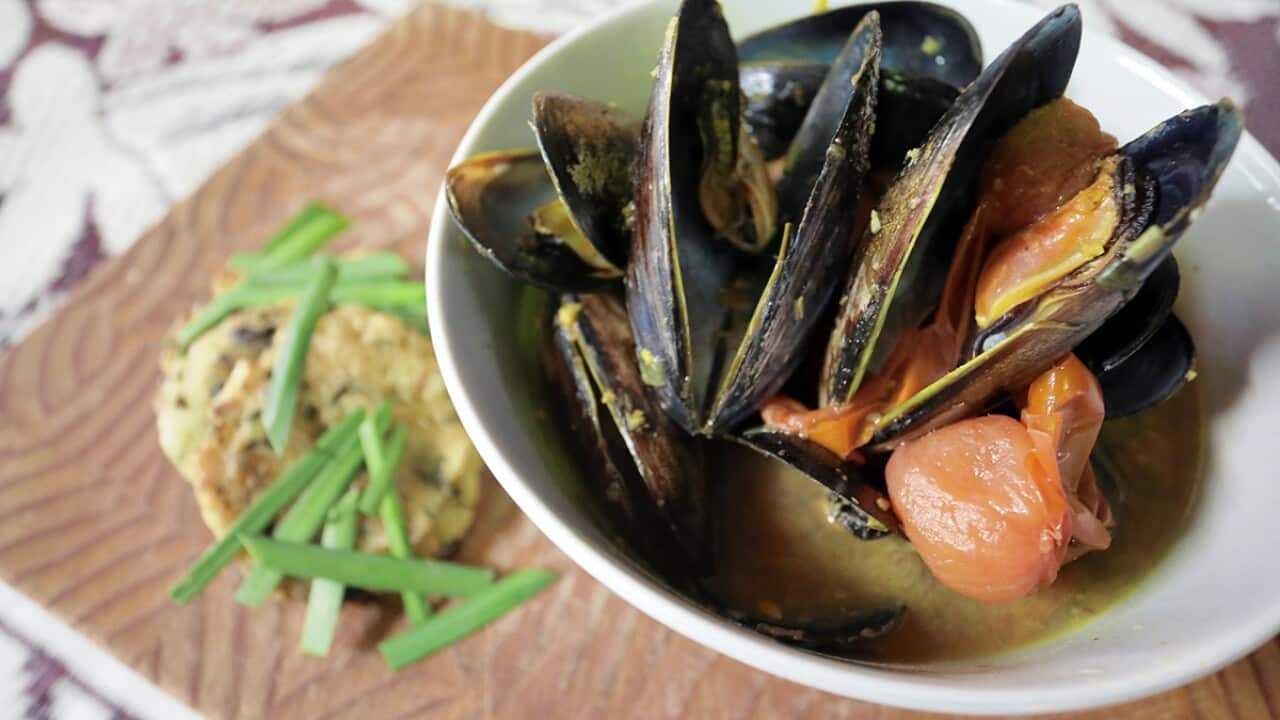Seafood fans with a regular hankering for molluscs are being encouraged to eat their favourite mussel-based dishes from around the world a few times a week, as part a new sustainable strategy to meet their nutritional omega-3 requirements.
The call comes from nutrition scientist, Dr Lee Hamilton, who was involved in a new international study that found mussels to be a suitable source of omega-3 long-chain polyunsaturated fatty acids.
The Scottish-based study, published in the journal , is the first to use mussels as a food-based solution to sustainably enhance people’s omega-3 levels, without retreating to supplements.
So what our study wanted to examine was whether a more environmentally-friendly alternative could be effective at improving the omega-3 index – a measure of whether a person is getting enough omega-3 in their diet.
The study’s results highlighted that although the omega-3 content of mussels is still lower than salmon, mussels are rich in long-chain omega-3 fatty acids, and can yield a potentially lower environmental and economic cost than many other fishy alternatives.
Dr Hamilton, a lecturer in Deakin’s Institute for Physical Activity and Nutrition, explains that mussel aquaculture is considered to have a minimal environmental impact because mussels are plankton-filter feeders.
“Marine-derived omega-3s are critical for human health, but popular sources such as salmon aren’t as environmentally friendly as some shellfish sources,” Dr Hamilton says.
“So what our study wanted to examine was whether a more environmentally-friendly alternative could be effective at improving the omega-3 index – a measure of whether a person is getting enough omega-3 in their diet.”
How to eat mussels to get your omega-3 fix
Researchers monitored the diets of 12 Scottish university students, feeding them a third of their calories at lunch with mussels as the protein source, three times per week for two weeks.
Meals were also tailored to an individual’s regular diet and typical calorie intake to adjust for people’s varying omega-3 needs.
Study participants also ate mussels cooked according to three international recipes.
An Italian spaghetti with mussels and a tomato sauce was sampled, using garlic, onion, white wine, olive oil, chopped tomatoes and parsley. A Middle-Eastern inspired mussel couscous salad was also consumed, featuring couscous, garlic, cumin, tomatoes, cucumber, onion, olive oil, lemon, parsley and mussels. The final dish was a simple French rendition of a mussel broth – – with mussels, garlic, white wine, onion, butter, parsley and bread for dipping.
Replacing the protein component of lunchtime meals three times per week for two weeks with mussels is sufficient to moderately improve omega-3 status.
The results showed that by all participants improved their omega-3 status and met recommended omega-3 intake targets by introducing mussels into their diet.
“Replacing the protein component of lunchtime meals three times per week for two weeks with mussels is sufficient to moderately improve the omega-3 status,” the study reads.
“When compared against clinically relevant outcomes, such as the risk of sudden cardiac death, six of the 11 subjects improved their omega-3 status to a degree that is associated with at least a 20 per cent reduction in sudden cardiac death risk.”
Rethink your dishes to include mussels
The omega-3 index is an important marker of heart health. The recommends two to three portions of fish per week, including some oily fish that contains high amounts of omega-3s. The aim is to achieve an intake of 250-500mg of omega-3 per day.
Dr Hamilton estimates that in the study, mussels contained around 500mg of omega-3 for every 800 grams of mussel meat. However, omega-3 content of any product will vary from season-to-season, year-to-year and batch-to-batch.
Mussels are not just a starter in a fancy restaurant, they can be used as a protein component in a variety of ways.
More research is needed to determine how to encourage more people to consume mussels more often, given the study had a 14 per cent dropout rate (minus participants who were excluded due to food allergies) due to distaste for mussels.
“I really want to re-frame how people see mussels,” Dr Hamilton says. “For people not meeting omega-3 requirements, introducing mussels to their diet a few times a week could be a good strategy.
“...For example, if you're doing a fish pie, you could look to add a greater proportion of muscles than you would otherwise do. Fish curry and a fish stew would certainly work quite well, using muscles as an alternative to other fish.” The Spanish dish, paella, traditionally features mussels, as does Italian, French and Flemish variations of mussel broths.
“Mussels are not just a starter in a fancy restaurant, they can be used as a protein component in a variety of ways.”










